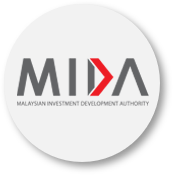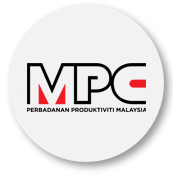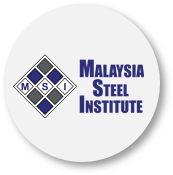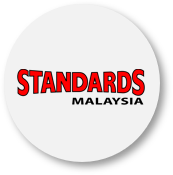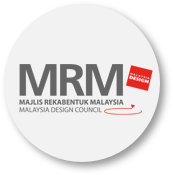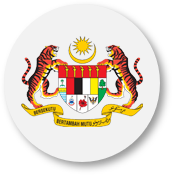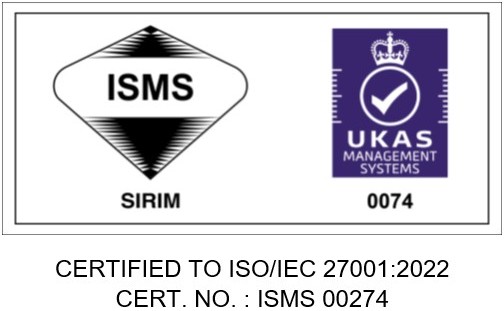Legislation | Questionnaire | Investigations
Malaysia's Countervailing and Anti-Dumping Administration
The purpose of establishing Malaysia 's countervailing and anti-dumping legislation is to empower the Investigating Authority to take remedial measures against unfair trading by foreign manufacturers/exporters and to provide a framework for investigating allegations of injury caused by dumped or subsidized imports.
Malaysia 's international rights and obligation in this area are governed by her membership in the World Trade Organisation (WTO) and of the WTO Agreements on Anti-Dumping and Subsidies & Countervailing Measures.
DUMPING AND SUBSIDIES - ARE YOU AFFECTED?
If you are a producer/manufacturer or your activities are dependent on a Malaysian industry either directly or indirectly, or an exporter or an importer in Malaysia, then you need to know about dumping and subsidies to facilitate your understanding of Malaysia's countervailing and anti-dumping legislation.
If you are involved in a Malaysian industry, exporting to Malaysia or an importer in Malaysia , then you need to know about dumping and subsidies to facilitate your understanding of Malaysia 's countervailing and anti-dumping legislation.
What is dumping ?
Dumping occurs when the "export price" of the product in Malaysia is less than the "normal value" of the same or "like product" in the domestic market in the country of export or origin.
In other words, dumping is an international price discrimination whereby a company charges more in its home market than in the export market.
What is "export price"?
Export price is the price actually paid or payable for the "subject merchandise" (alleged foreign products that are sold in Malaysia at dumped prices) . In cases where there is no export price or where it appears that the export price is unreliable because of association or a compensatory arrangement between the exporter and the importer or a third party, the export price may be constructed on the basis of the price at which the subject merchandise is first resold to an independent buyer.
What is "subject merchandise" ?
Subject merchandise means the class or kind of merchandise imported or sold for importation into Malaysia that is the subject of any countervailing or anti-dumping duty action under Act 504.
What is "like product" ?
Like product means a product which is identical or alike in all respects to the subject merchandise, and may include any other product which has physical, technical or chemical characteristics, applications or uses that resembles those of the subject merchandise.
What is "normal value"?
Normal value is the price paid in the ordinary course of trade in the domestic market of the country of export. Sales used to ascertain normal value must be profitable and unaffected by any relationship between buyer and seller.
Nonetheless, where there are no sales in the domestic market of the exporting country or when such sales do not permit a proper comparison, normal value may be ascertained based upon:
- sales by the manufacturer/exporter to a customer in an appropriate third country; or
- the cost of production plus a reasonable amount for administrative, selling and general costs and profit. All the costs and profit normally calculated based on the actual data incurred by the manufacturer/exporter in the country of origin/export.
Note !!!
Inevitably, there are differences in the circumstances of export and domestic sales which affect price comparability such as the conditions and term of sales, taxation, quantities and physical characteristics. Therefore, in order to effect a fair comparison between the normal value and the export price, these differences are accounted for in each case on its merits. It is only after these adjustments have been made that there is a basis for fair comparison of the normal value and the export price which will normally be compared at the same level of trade and in respect of sales made at as nearly as possible the same time.
What is "dumping margin" and "anti-dumping duty" ?
Dumping margin is the difference between the normal value and the export price. Anti-dumping duty usually is based on the dumping margin calculated. The equation is shown below :
DUMPING MARGIN (DM) = NORMAL VALUE (NV) - EXPORT PRICE (EP)
or
{as percentage (%) of export price}
DM = NV - EP x 100%
--------
EP
What is subsidy and Countervailing Duty ?
Subsidization occurs when the government/public body of the exporting country or country of origin provides financial assistance to their domestic manufacturers/exporters that benefits directly or indirectly on the production, growth, processing, purchase, distribution, transportation, sales or export of products. The subsidy can be the result of any scheme, programme or practice provided or implemented by a government such as loans, grants and tax incentives. The measure is imposed to offset injury to the Malaysian industry from the effects of subsidized imports. The measure is in the form of imposing a countervailing duty.
What is "material injury" ?
Material injury occurs when the Malaysian industry has suffered or is threatened with significant injury to its business or, the establishment of a Malaysian industry is adversely affected. There are many ways to demonstrate material injury sustained by the Malaysian industry but it is generally categorized into price effect, volume effect and profitability effect.
Price Effect - what does it mean ?
The effect of dumped or subsidized imports on prices of the like product in the domestic market in forms of price undercutting, price depression or price suppression. Price undercutting occurs when the dumped or subsidized imports undercut the selling price of the Malaysian industry's selling price.
Price depression occurs when the Malaysian industry is forced to reduce its selling price in order to compete with the dumped or subsidized imports. Price suppression occurs when the Malaysian industry is unable to raise its selling price in line with the increase in costs of production. In this context, the margin between costs and prices is reduced.
Volume effect - what does it mean ?
The consequent impact of dumped or subsidized imports on the Malaysian market pertaining to economic factors such as volume injury in terms of loss or potential loss of sales volume or market share.
Profitability effect - what does it mean ?
The effect of reduced profit which may result from downward pressure on prices, reduction in sales volume or the inability to absorb the increase in costs.
Note !!!
Apart from the above main factors, there are many relevant economic factors that may be considered in relation to the Malaysian industry. These may include a reduction in employment and wage levels, production levels, capacity utilisation, forward orders, return on investment, cash flow, ability to raise capital, investment, increased inventory holding caused by decreased sales volume and pricing pressure.
It must be emphasised that the affected domestic industry must provide evidence to show that the material injury is caused by dumped or subsidized imports. For example, a decline in market share must be directly related to an increase in the market share of the dumped or subsidized imports.
What action may be taken ?
Anti-dumping or countervailing measures may be imposed against dumped or subsidized imports when the Malaysian industry concerned can demonstrate that those dumped or subsidized imports had caused, or threaten to cause material injury to the domestic industry producing like products or had materially retarded the establishment of such industry.
How will this affect importers and manufacturers and exporters ?
In advising importers and foreign manufacturers and exporters of the initiation of an investigation, the Investigating Authority will also distribute a set of questionnaires to acquire information such as export and import transactions. This information is required to be submitted within a certain period of time, usually within 30 days of the initiation notice. The Investigating Authority may then visit the premises of the importers and manufacturers and exporters to verify the information provided in response to the questionnaires.
Investigations involving the foreign manufacturers and exporters are concerned with assessing normal value and establishing whether dumping or subsidisation exists, whereas investigations involving the importers are aimed at determining the export price and whether all costs are recovered in the sale of the imported products in the Malaysian market.
Who can submit an anti-dumping or a countervailing petition ?
When a Malaysian domestic industry is of the view that there is evidence of subsidy and/or dumping and that the subsidy and/or dumping is causing injury, a written petition may be submitted to commence the process of a countervailing and/or an anti-dumping action to the Investigating Authority of MITI. It must be noted that mere assertions, unsubstantiated by relevant evidence, cannot be considered sufficient to meet the requirements of a properly documented petition.
Under the Malaysian legislation, a written petition must be filed by or on behalf of the domestic industry and should contain sufficient evidence of dumping (or in the case of a countervailing action, evidence of subsidized imports), injury and a causal relationship between the dumped (or subsidized) imports and the alleged injury.
In this context the petitioner must show that the petition is supported by the domestic producers whose collective output/production constitutes more than 50% of the total production of the domestic producers expressing either support or opposition to the petition and the domestic producers expressing support to the petition amount to 25% of the total production of the domestic industry.
What should be included in a written petition ?
A written petition must provide information and sufficient supporting evidence of the following :
- the identity of the petitioner, its production volume and value
- the identity of other domestic producers of the like product in Malaysia , their production volume and value
- the 50% and 25% rule mentioned and whether the petition is made by or on behalf of the domestic industry
- a complete description of the alleged dumped import such as its physical & technical characteristics, usage & functions, manufacturing methods & technology, industry specifications, pricing, distribution & marketing and tariff classification
- the name of the alleged country, that is, the exporting country or country of origin
- the identity of each known foreign producer or exporter of the dumped or subsidised imports
- the identity of the importers of the dumped or subsidised imports· estimate the normal value, export price and dumping margin or amount of subsidy
- the evidence of injury suffered by the domestic industry and demonstrate how the dumped or subsidised imports have caused, or are likely to cause material injury or retard the establishment of such industry.
- analysis on the evolution of imports volume of the subject merchandise. In this context indicate whether there had been a significant increase in dumped or subsidised imports either in absolute terms or relative to production or consumption in Malaysia .
- analysis on the effect of the dumped or subsidised imports on prices of the like products in the Malaysian market , that is whether there has been significant price undercutting, price depression or price suppression
- analysis on the consequent impact of the dumped or subsidised imports on the domestic industry, that is, whether the domestic industry is suffering from the actual or potential decline in sales, market share, profit, output, productivity, return on investment or utilization of capacity and whether the domestic industry is suffering from the actual or potential negative effects on cash flow, inventories, employment or wages.
Note !!!
There are minor differences in the information required in an application for countervailing action. As normal value is only relevant to dumping, an application alleging subsidisation need not show a normal value for the products. Instead the application needs to indicate how the subsidy operates and how much subsidy is provided on the products exported to Malaysia .
How does the investigation proceed?
Normally, the investigation has four phases :
- Pre-lodgement phase - during which applicants or petitioners prepare their submission
- Filing of petition - prima facie inquiry in which the Investigating Authority determines whether the facts as presented, if proven would constitute a case
- Initiation and preliminary investigation - The Investigating Authority considers whether the alleged products are dumped or subsidized and, if so, whether the dumping or subsidization is causing material injury to the domestic industry manufacturing the like product. An affirmative finding at this stage may lead to provisional measures being applied
- Final investigation - The Investigating Authority determines whether a recommendation should be made for the imposition of definitive anti-dumping or countervailing duties
An overview of the four phases are as follows:
Phase 1 (Pre-lodgement)
During the pre-lodgement phase, the potential applicant/petitioner may contact the officers of Trade Practices Section for assistance in understanding the requirements of a written petition.
Phase 2 (Filing of petition)
This is a prima facie phase. The Investigating Authority must examine the accuracy and adequacy of the evidence contained in the written petition and any other available information to determine whether in fact there is sufficient evidence to warrant the initiation of an investigation. The Investigating Authority is allowed 30 days to make a decision whether to accept or reject the petition. If the petition is accepted, the Investigating Authority must notify the petitioner and publicly announce the initiation of the investigation.
Phase 3 ( Initiation and Preliminary determination)
Following initiation, the Government shall carry out a full investigation of the alleged dumping or subsidy, material injury and causal link, and make a preliminary determination within 120 days (can be extended by another 30 days) from the date of the publication of the notice of initiation of investigation. During this preliminary investigation period, the alleged parties are given the opportunity to defend their interest by submitting the relevant data pertaining to the case.
Where there is an affirmative preliminary determination of dumping or subsidy consequent injury to a domestic industry, temporary duty known as provisional measures in the form of a bank guarantee or bank draft may be applied against the future importation of the products only if such a measure is considered necessary to prevent injury being caused during the period of investigation. Provisional measures shall not be applied for sooner than 60 days from the date of initiation of the investigation and the period of application of such measures should normally not exceed 4 months (can be extended by another 30 days).
Where there is a negative preliminary determination with regard to the existence on dumping or subsidisation and injury, the Investigating Authority shall publish a notice stating the reasons for the negative determination.
Phase 4 (Final determination)
The Investigating Authority must make a final determination of dumping or subsidisation and injury within 120 days from the date of the publication of the notice of preliminary determination. During the final investigation period, the Investigating Authority will carry out on-site verification visits of the alleged parties to verify the data submitted to ensure its accuracy and relevance. The investigation is intended to further establish and verify dumping, injury and causation to justify the application of definitive duty.
Where there is an affirmative final determination, a definitive duty will be imposed for a period of 5 years from the date of the publication of the notice of the final determination. Where there is a negative final determination, a notice stating the reasons for the negative determination and termination of investigation is published.
Undertakings- what does it mean?
There are provisions in the Malaysian legislation for the acceptance by the Investigating Authority of undertakings by manufacturers or exporters. An undertaking is an agreement by the alleged manufacturer or exporter to conduct its future export trade in such a manner that it will not cause injury to the domestic industry. Undertakings if offered can only be accepted after affirmative preliminary determination has been reached by the Investigating Authority.
In the case of subsidy, an undertaking is an agreement by the government of the exporting country to eliminate or limit the subsidy or take other measures concerning its effects on the Malaysian domestic industry.
Administrative Review- what does it mean ?
Both the countervailing and anti-dumping duties will only remain in force as long as and to the extent necessary to counteract subsidies or dumping which is causing injury to the domestic industry. In this regard, Malaysia 's countervailing and anti-dumping administration provides for administrative review after at least one year has lapsed from the date of the publication of the imposition of the definitive duties. Administrative review may be sought in the following situations:
- where there are changed circumstances in the dumping margin or the amount of subsidy
- where the duties imposed or undertakings are considered no longer necessary or otherwise be maintained.
Need more assistance or information ?
If you would like to know more about dumping and subsidy matters, you are welcome to contact the Trade Practices Section:
The Director
Trade Practices Section
Ministry of International Trade and Industry (MITI)
9th Floor, Menara MITI, No. 7,
Jalan Sultan Haji Ahmad Shah,
50480 Kuala Lumpur, Malaysia.
Email : alltps@miti.gov.my
Facsimile : 03 - 62114429
Last Updated 2023-12-15 12:04:38 by Azuna Hasbullah atau Abd Rahman







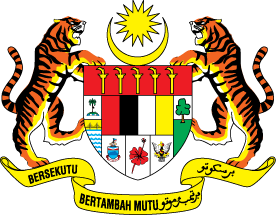





 Home
Home








